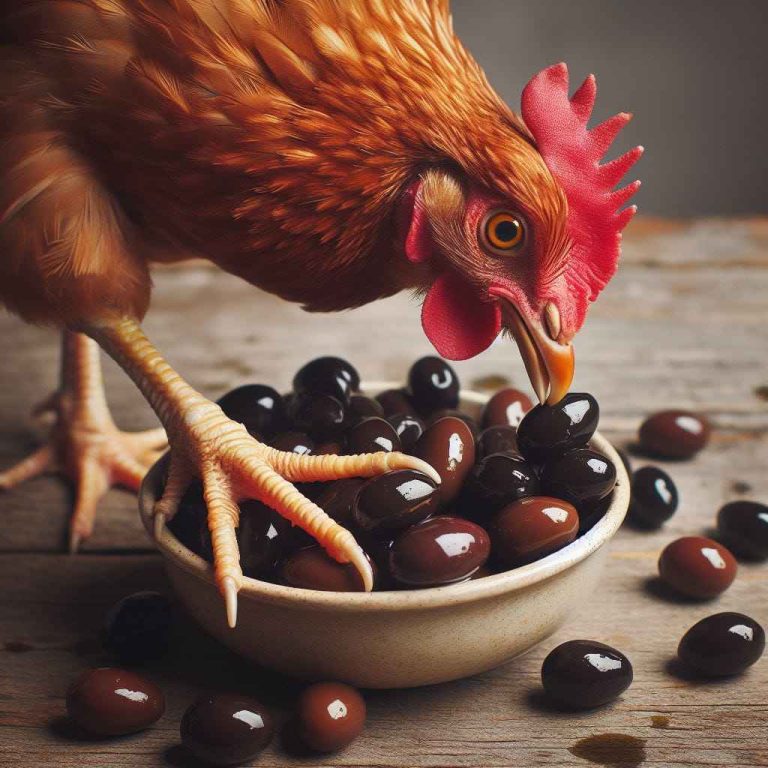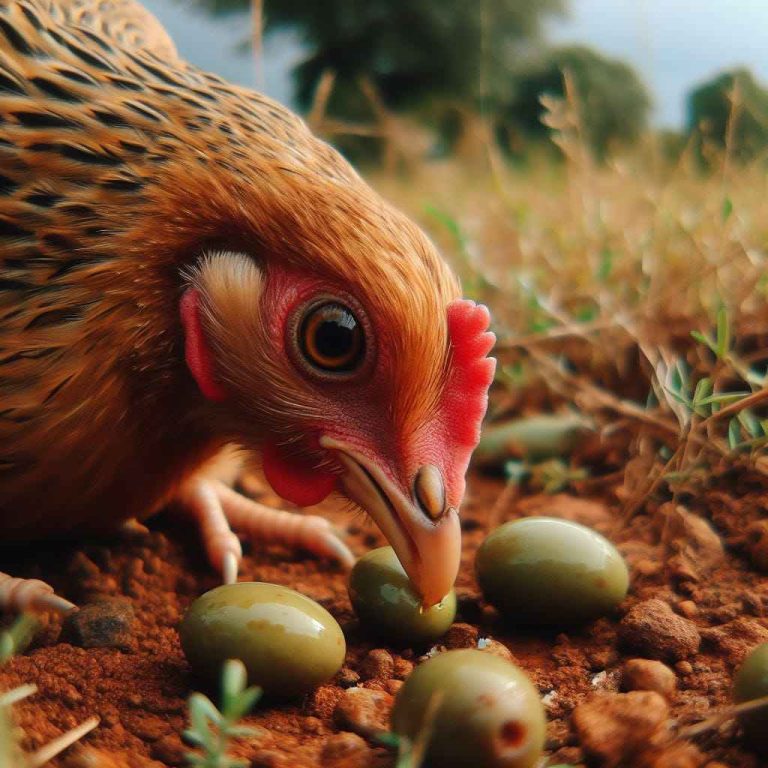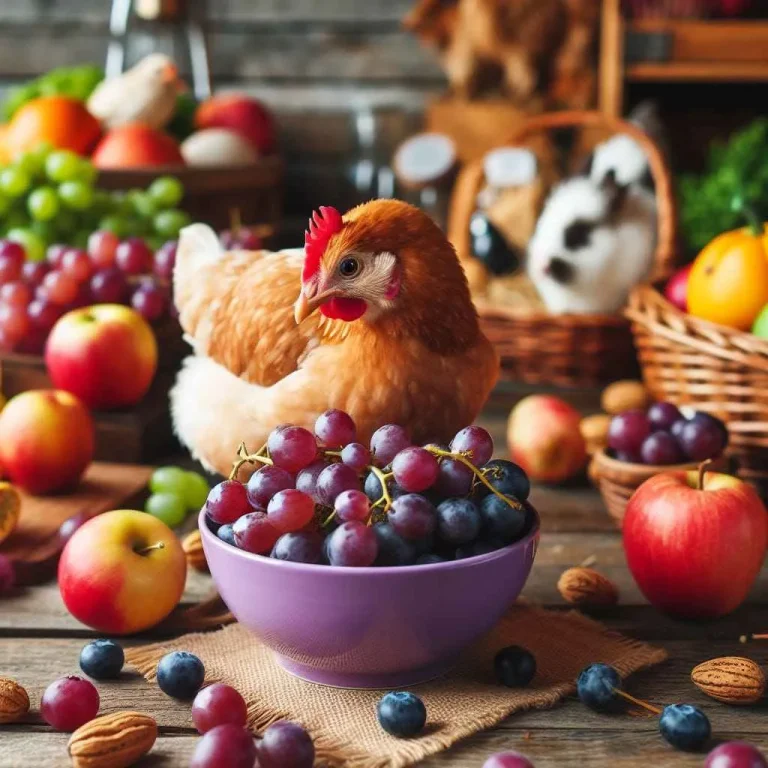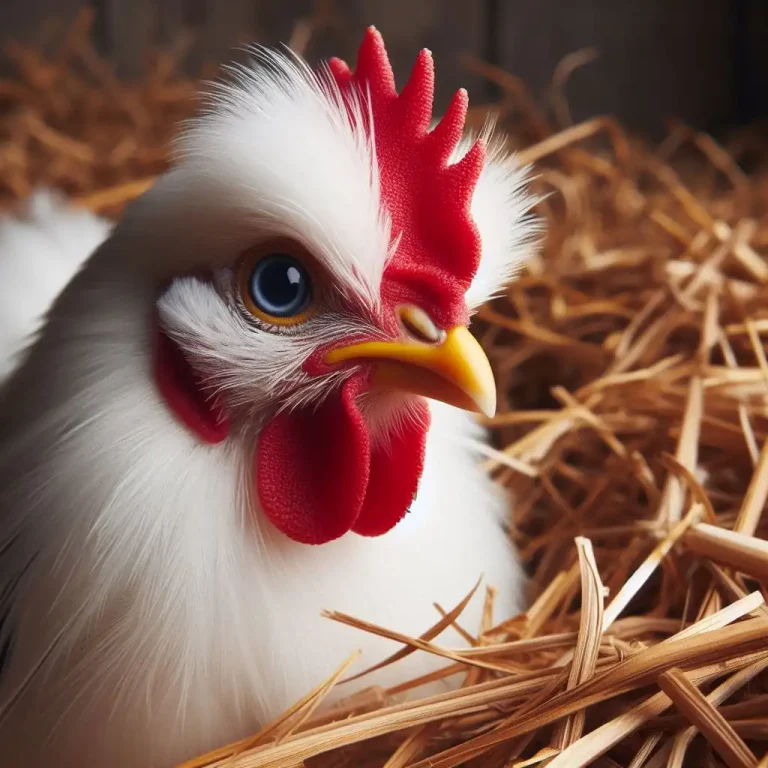Can Ducks Eat Pomegranate Seeds
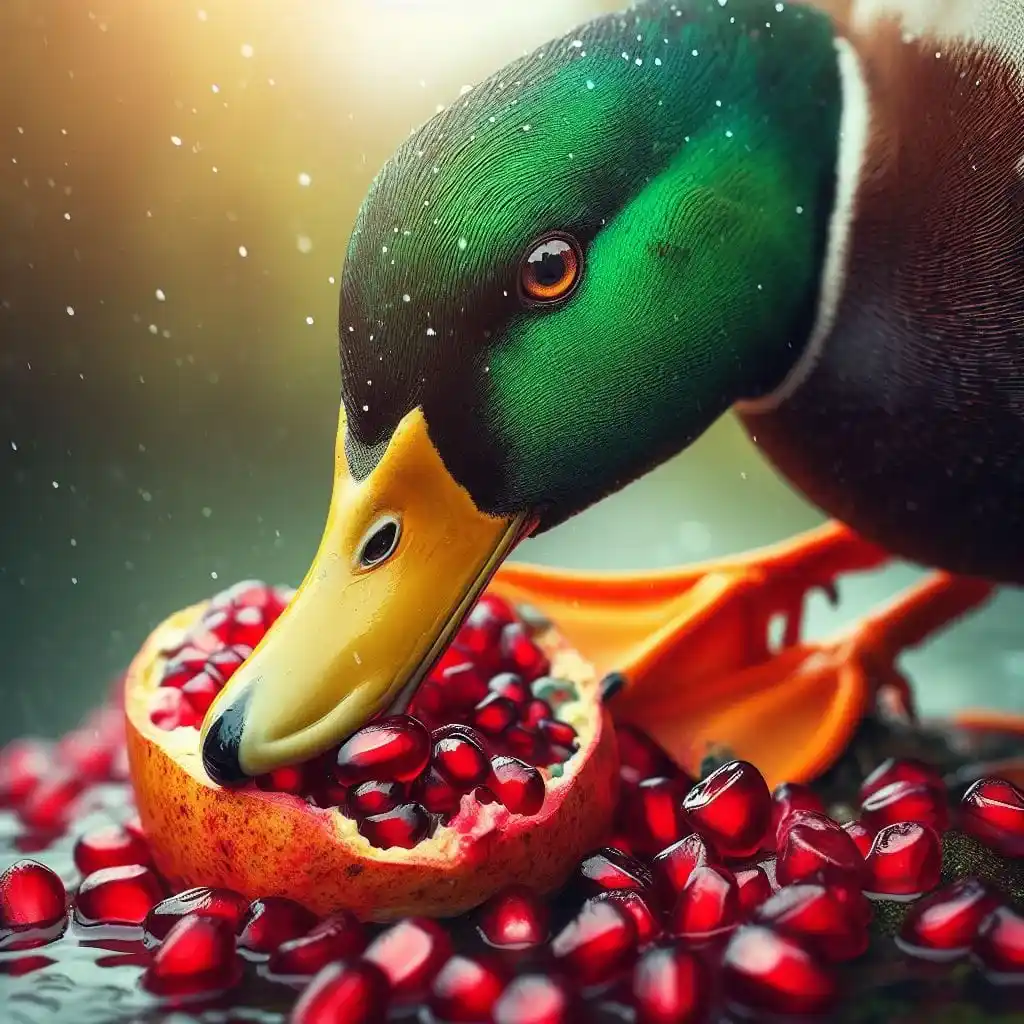
Can Ducks Eat Pomegranate Seeds
Pomegranate seeds are generally safe for ducks to eat in moderation, but there are a few considerations to keep in mind. Ducks can consume a variety of fruits, including pomegranate, as part of a balanced diet. Pomegranate seeds are rich in vitamins, minerals, and antioxidants, which can offer some nutritional benefits to ducks.
However, it’s important to remember that ducks have specific dietary needs, and their primary diet should consist of duck feed formulated specifically for their nutritional requirements. Treats like pomegranate seeds should only be offered occasionally and in small quantities, as they should not replace the staple diet.
When offering pomegranate seeds to ducks, it’s essential to prepare them properly. Remove the seeds from the fruit and avoid feeding ducks any part of the pomegranate rind or skin, as these can be difficult for them to digest and may cause gastrointestinal issues. Additionally, make sure the seeds are fresh and free from any mold or spoilage.
While pomegranate seeds can provide ducks with some essential nutrients, they should be considered more of a treat than a dietary staple. Offering a diverse range of treats, including fruits like pomegranate, can help keep ducks stimulated and provide them with additional nutrients.
It’s also crucial to monitor the ducks’ behavior and health after introducing new foods like pomegranate seeds. If you notice any signs of digestive upset, such as diarrhea or vomiting, discontinue feeding the seeds immediately and consult a veterinarian if necessary.
In summary, ducks can eat pomegranate seeds as an occasional treat, but they should not make up a significant portion of their diet. Offer them fresh seeds in moderation, and always prioritize their staple diet of duck feed to ensure they receive the necessary nutrients for optimal health.
Pomegranate Nutritional Value
Pomegranates are prized not only for their sweet-tart taste but also for their impressive nutritional profile. Here’s a breakdown of the nutritional value of pomegranates:
- Vitamins: Pomegranates are rich in various vitamins, including:
- Vitamin C: Known for its immune-boosting properties, pomegranates are an excellent source of vitamin C, which also acts as an antioxidant.
- Vitamin K: Essential for blood clotting and bone health, vitamin K is found in significant amounts in pomegranates.
- Folate (Vitamin B9): Important for cell division and DNA synthesis, folate is present in pomegranates, albeit in smaller quantities compared to some other vitamins.
- Minerals: Pomegranates contain several minerals that are beneficial for overall health, including:
- Potassium: Important for maintaining fluid balance, potassium is found in moderate amounts in pomegranates.
- Calcium: Although not as abundant as in dairy products, pomegranates still contain some calcium, which is essential for bone health.
- Iron: Pomegranates contain small amounts of iron, which is necessary for oxygen transport in the blood.
- Fiber: Pomegranates are a good source of dietary fiber, including both soluble and insoluble fiber. Fiber aids in digestion, promotes satiety, and helps regulate blood sugar levels.
- Antioxidants: Pomegranates are packed with powerful antioxidants, including polyphenols, flavonoids, and tannins. These antioxidants help protect the body against oxidative stress and inflammation, which are linked to various chronic diseases.
- Calories and Macronutrients: Pomegranates are relatively low in calories but provide a good amount of carbohydrates, primarily in the form of natural sugars. They are also low in fat and protein.
- Other Bioactive Compounds: Pomegranates contain various bioactive compounds with potential health benefits, such as punicalagins (responsible for pomegranate’s antioxidant properties) and punicic acid (a type of conjugated linolenic acid with potential anti-inflammatory effects).
Overall, pomegranates are nutrient-dense fruits that can contribute to a healthy and balanced diet. Incorporating them into your diet can provide a range of vitamins, minerals, fiber, and antioxidants, supporting overall health and well-being.
Is Pomegranate Safe for Ducks to Consume?
Pomegranates are generally considered safe for ducks to consume in moderation, but there are some important considerations to keep in mind. Ducks are omnivores and can eat a variety of fruits, including pomegranates, as part of a balanced diet. However, it’s essential to understand the potential risks and benefits associated with feeding pomegranates to ducks.
One concern is the size and hardness of pomegranate seeds. While ducks can eat small seeds and grains as part of their natural diet, large or hard seeds may pose a choking hazard. Therefore, it’s important to ensure that pomegranate seeds are small enough for ducks to swallow safely. Additionally, ducks may have difficulty digesting large seeds or pits, so it’s best to remove them before offering pomegranates to ducks.
Another consideration is the sugar content of pomegranates. While pomegranates are relatively low in sugar compared to some other fruits, they still contain natural sugars that can contribute to weight gain and other health issues if consumed in excess. Therefore, pomegranates should be offered to ducks as an occasional treat rather than a staple food.
Despite these considerations, pomegranates offer some nutritional benefits for ducks. They are rich in vitamins, minerals, and antioxidants, which can support overall health and well-being. Pomegranates are particularly high in vitamin C, which is essential for immune function and can help ducks stay healthy.
When offering pomegranates to ducks, it’s essential to do so in moderation and to monitor their behavior and health closely. If ducks show signs of digestive upset, such as diarrhea or vomiting, discontinue feeding them pomegranates and consult a veterinarian if necessary.
In summary, pomegranates can be a safe and nutritious treat for ducks when offered in moderation and prepared properly. However, it’s essential to consider potential choking hazards, sugar content, and digestive issues when feeding pomegranates to ducks. With proper precautions, pomegranates can be a tasty and beneficial addition to a duck’s diet.
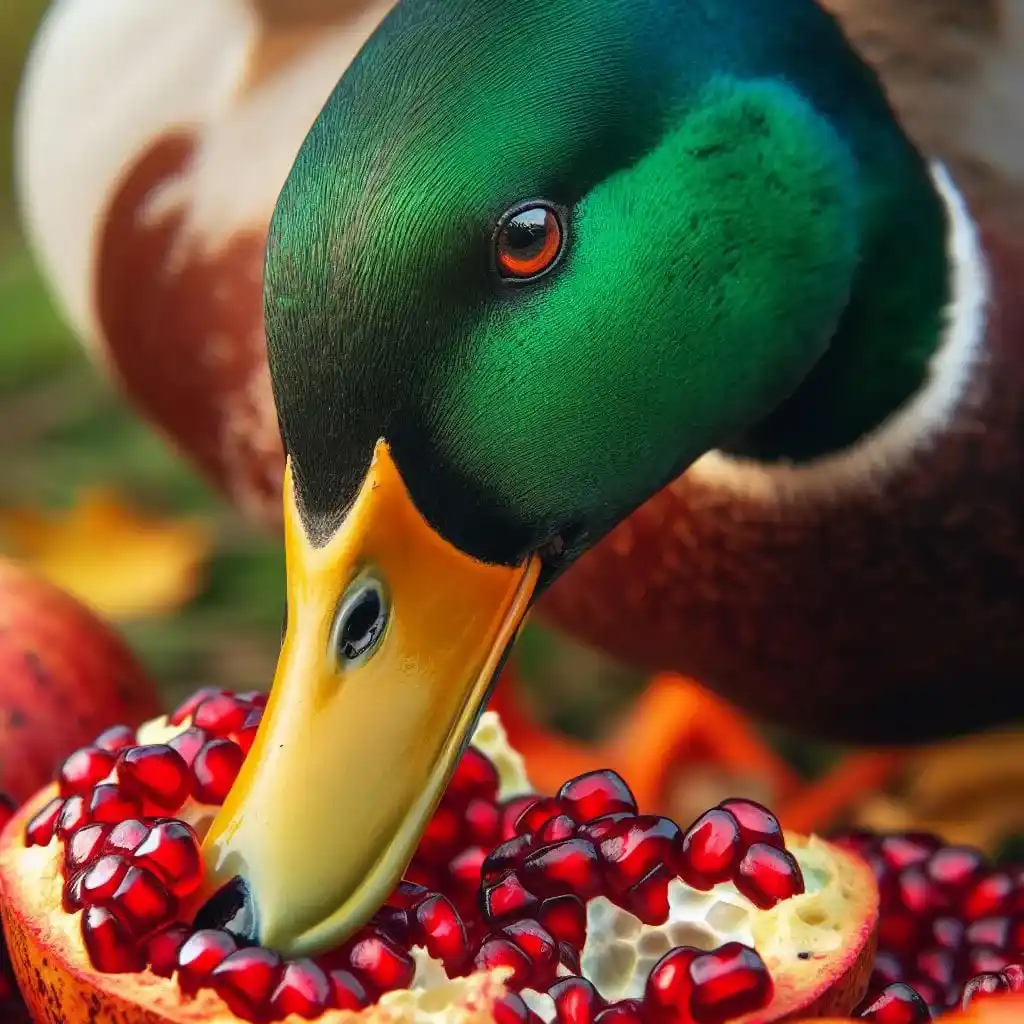
Potential Benefits of Pomegranate for Ducks
Pomegranates offer several potential benefits for ducks when incorporated into their diet in moderation. While ducks primarily thrive on a diet of duck feed formulated to meet their nutritional needs, occasional treats like pomegranates can provide additional nutrients and enrichment. Here are some potential benefits of pomegranates for ducks:
- Nutritional Value: Pomegranates are rich in essential vitamins and minerals that can support overall health in ducks. They contain significant amounts of vitamin C, which boosts the immune system and helps ducks resist infections and diseases. Additionally, pomegranates provide vitamins A, E, and K, along with minerals like potassium and calcium, which contribute to various bodily functions and promote overall well-being.
- Antioxidant Properties: Pomegranates are packed with antioxidants, including polyphenols and flavonoids, which help protect cells from damage caused by free radicals. Antioxidants play a crucial role in reducing inflammation, supporting cardiovascular health, and preventing chronic diseases in ducks.
- Hydration: Pomegranates have a high water content, which can help keep ducks hydrated, especially during hot weather or periods of increased activity. Providing ducks with hydrating fruits like pomegranates can supplement their water intake and contribute to overall hydration levels.
- Digestive Health: The fiber found in pomegranates can support digestive health in ducks by promoting regular bowel movements and preventing constipation. Fiber also acts as a prebiotic, nourishing beneficial gut bacteria and maintaining a healthy balance of microorganisms in the digestive tract.
- Enrichment and Mental Stimulation: Offering pomegranates to ducks as a treat can provide mental stimulation and enrichment. Ducks enjoy pecking at and exploring new foods, and the texture and flavor of pomegranates can stimulate their senses and provide entertainment.
While pomegranates offer several potential benefits for ducks, it’s essential to offer them in moderation and alongside a balanced diet. Pomegranates should not replace the staple diet of duck feed but can serve as a healthy and enjoyable occasional treat. Monitoring ducks’ behavior and health after introducing pomegranates can help ensure they tolerate them well and reap the nutritional benefits they offer. For more information on feeding various types of treats to ducks, including nuts like almonds, you can read our guide on Can Ducks Eat Almonds?
Alternative Treats for Ducks: Healthy Options
While ducks enjoy a diverse diet, it’s essential to provide them with healthy treats in moderation to supplement their staple diet of duck feed. Here are some alternative treats for ducks that offer both nutrition and enjoyment:
- Leafy Greens: Ducks love leafy greens like kale, spinach, and lettuce. These greens are low in calories and rich in vitamins A, C, and K, as well as minerals like calcium and iron. Offering leafy greens as treats can provide ducks with essential nutrients while satisfying their natural instinct to forage.
- Vegetables: Ducks can also enjoy a variety of vegetables, including carrots, cucumbers, and bell peppers. These vegetables are crunchy and hydrating, making them enjoyable treats for ducks. Vegetables are packed with vitamins, minerals, and antioxidants that support overall health and well-being in ducks.
- Fruits: In addition to pomegranates, ducks can eat a variety of fruits as treats. Apples, berries, melons, and grapes are all popular choices. Fruits provide ducks with vitamins, minerals, and natural sugars that can boost energy levels and promote overall health. However, fruits should be offered in moderation due to their sugar content.
- Mealworms: Mealworms are a protein-rich treat that ducks enjoy. They are high in essential amino acids and provide ducks with an extra source of protein to support muscle growth and repair. Mealworms can be offered dried or live and are readily available at pet stores or online.
- Cooked Grains: Ducks can eat cooked grains like rice, oats, and quinoa as treats. Cooked grains are easy to digest and provide ducks with carbohydrates for energy. They can be mixed with vegetables or fruits for added flavor and variety.
When offering treats to ducks, it’s essential to do so in moderation and to monitor their behavior and health closely. Treats should complement, not replace, their staple diet of duck feed to ensure they receive the necessary nutrients for optimal health. By providing a variety of healthy treats, you can keep your ducks happy, healthy, and entertained.
Conclusion
In conclusion, while ducks can enjoy a variety of treats, including pomegranate seeds, it’s important to offer them in moderation and alongside a balanced diet of duck feed. Pomegranate seeds can provide ducks with essential nutrients and antioxidants, but they should not replace the staple diet of duck feed. Additionally, precautions should be taken to ensure that pomegranate seeds are small enough to prevent choking hazards and that ducks tolerate them well without experiencing digestive upset.
Furthermore, there are plenty of alternative treats for ducks that offer both nutrition and enjoyment. Leafy greens, vegetables, fruits, mealworms, and cooked grains are all healthy options that can supplement a duck’s diet and provide them with essential vitamins, minerals, and proteins.
By offering a diverse range of treats in moderation, duck owners can ensure that their feathered friends receive the necessary nutrients for optimal health while also providing mental stimulation and enrichment. Monitoring ducks’ behavior and health after introducing new treats is crucial to ensure they tolerate them well and reap the nutritional benefits they offer.
Overall, with proper care and attention to their dietary needs, ducks can enjoy a happy and healthy life, filled with nutritious treats and plenty of love and care from their owners.
FAQs
Can ducks eat pomegranate seeds?
Ducks can eat pomegranate seeds in moderation. However, it’s essential to ensure that the seeds are small enough to prevent choking hazards.
Are pomegranate seeds safe for ducklings?
Pomegranate seeds should be offered to ducklings with caution. It’s best to introduce new foods gradually and monitor their response to ensure they tolerate them well.
How should I prepare pomegranate seeds for ducks?
To prepare pomegranate seeds for ducks, simply remove them from the fruit and offer them fresh. Avoid feeding ducks any part of the pomegranate rind or skin, as these can be difficult for them to digest.
Can ducks eat other parts of the pomegranate, such as the skin or rind?
Ducks should not eat the skin or rind of the pomegranate, as these parts can be tough and difficult for them to digest. Stick to offering them the seeds only.
Can ducks eat other parts of the pomegranate, such as the skin or rind?
Ducks should not eat the skin or rind of the pomegranate, as these parts can be tough and difficult for them to digest. Stick to offering them the seeds only.
Are there any health risks associated with feeding pomegranate seeds to ducks?
While pomegranate seeds are generally safe for ducks to eat, there are some risks to consider. Large or hard seeds may pose a choking hazard, and excessive consumption of sugary fruits like pomegranates can contribute to weight gain and other health issues. It’s essential to offer pomegranate seeds in moderation and alongside a balanced diet of duck feed.


